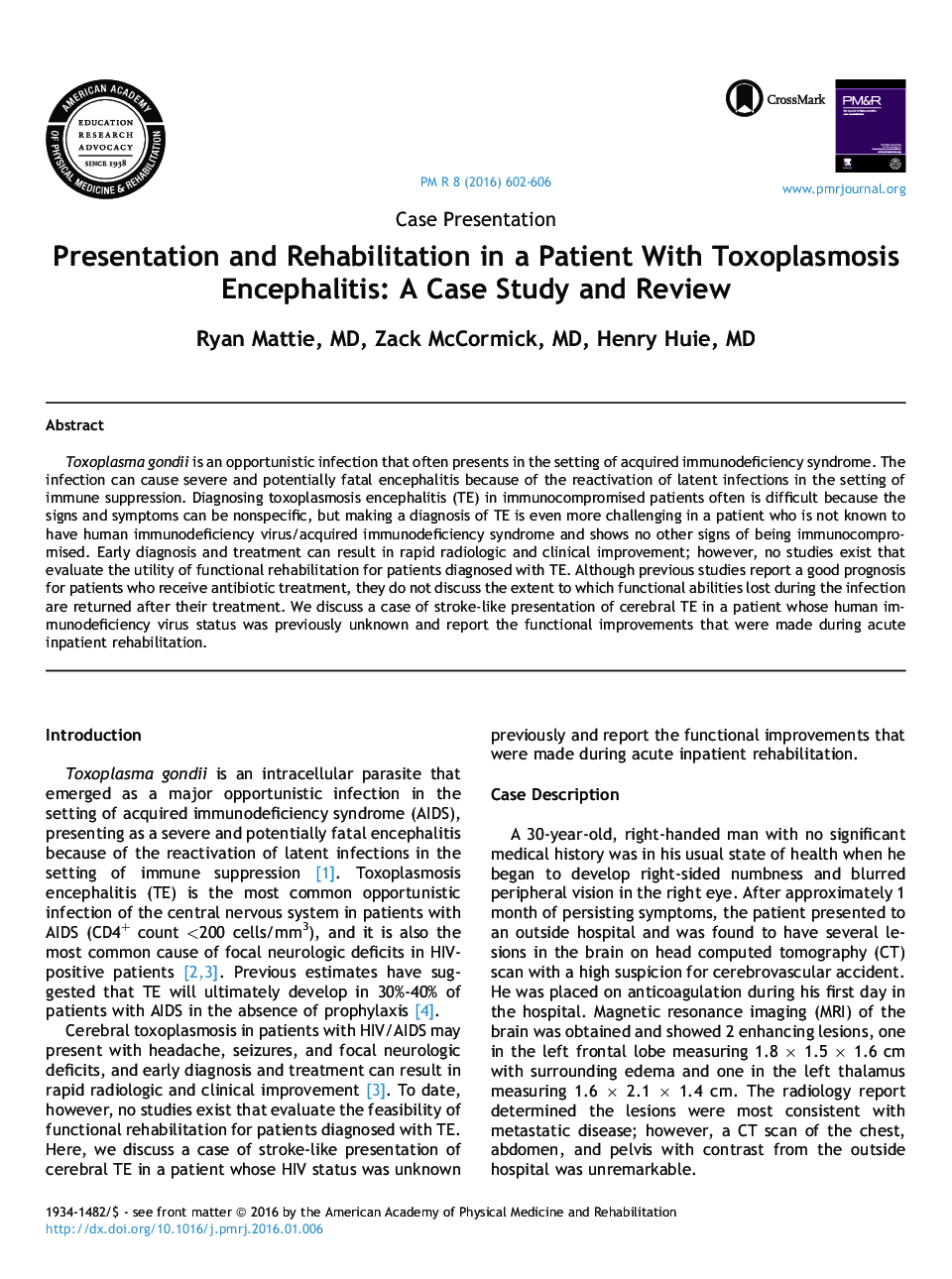| Article ID | Journal | Published Year | Pages | File Type |
|---|---|---|---|---|
| 2714919 | PM&R | 2016 | 5 Pages |
Toxoplasma gondii is an opportunistic infection that often presents in the setting of acquired immunodeficiency syndrome. The infection can cause severe and potentially fatal encephalitis because of the reactivation of latent infections in the setting of immune suppression. Diagnosing toxoplasmosis encephalitis (TE) in immunocompromised patients often is difficult because the signs and symptoms can be nonspecific, but making a diagnosis of TE is even more challenging in a patient who is not known to have human immunodeficiency virus/acquired immunodeficiency syndrome and shows no other signs of being immunocompromised. Early diagnosis and treatment can result in rapid radiologic and clinical improvement; however, no studies exist that evaluate the utility of functional rehabilitation for patients diagnosed with TE. Although previous studies report a good prognosis for patients who receive antibiotic treatment, they do not discuss the extent to which functional abilities lost during the infection are returned after their treatment. We discuss a case of stroke-like presentation of cerebral TE in a patient whose human immunodeficiency virus status was previously unknown and report the functional improvements that were made during acute inpatient rehabilitation.
